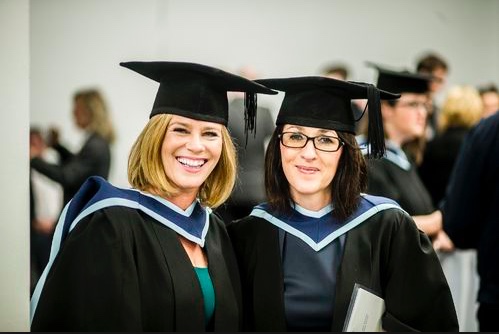OTC Cert: Supporting and Working with Families
- Next commencement: Autumn 2024 - TBD
- Application Deadline: TBD
GENERAL INFORMATION
COURSE CODE
OTC-CPD-WWF
LOCATION
Online
AWARD
Certificate in Supporting and Working with Families
APPLY BY
TBD
AUDIENCE
Care Workers, Health Care & Personal Assistants, Family or Home Support Workers, Community Care Workers
WORKSHOP DATES / TIME
TBD
CREDITS
This OTC-accredited programme is equivalent to 10 ECTS credits of student effort (=250 hours). Upon successful completion, a student may use these credits against an equivalent module on other programmes offered by OTC for Recognition of Prior Learning (RPL) purposes.
ASSIGNMENT SUBMISSION
TBD
WHY TAKE THIS COURSE
This OTC certified course, Certificate in Supporting and Working with Families, equips the student with a thorough understanding of family-centred ways of working so that the person being supported can achieve the universal good things of life.
Families are often the only constant in the lives of people with intellectual disabilities; regardless of the quality of the relationship between support staff and the person with disability, staff inevitably move on.
Everyone involved in the support of any person needs to recognise and appreciate the hugely important place held by families in the lives of people with ID, whether this is perceived as positive or negative these familial relationships need to be supported and nourished.
This is a programme for those working in the disability sector or with families of people with disabilities. The course is aimed at staff in the disability sector whose role involves:
- Interacting with or supporting the families of the people you support
- Facilitating advocacy/person centred plans with people using the service; and/or
- Performing a supervisory role within an organisation that supports advocacy/PCP
It is ideal for a practitioner with a social studies/care/community development qualification who would like to:
- Gain an in-depth knowledge of this area
- Critically reflect upon their role as a practitioner
- Obtain academic recognition

WHAT YOU WILL YOU LEARN
Learning Objectives
After completing this course you should be able to:
-
- Critically discuss the nature and complexities of modern families and how cultural differences and legislation might influence attitudes towards people with disabilities.
- Examine the experiences, challenges and opportunities of families of people with disabilities.
- Critically examine the support roles expected and required of staff, services and families in supporting people with disabilities.
- Elaborate on the skills required to work in a professional manner with families to effectively support people with a disability.

COURSE CONTENT
Programme Units
This course will be delivered in four units:
Assessment
Successful completion of the course is dependent on undertaking a series of assessments. These involve:
- Completing a practical project (2,500 words) that ties together your learning and professional practice
- Critically reflecting on how the course has changed your perceptions of your role
- Participating in an online discussion with a learning community made up of fellow practitioners and tutors.
You will be supported in your assessment through the OTC's innovative, award winning learner support model. Read more about the model here.
ADDITIONAL COURSE INFORMATION
The Tutor View - Cathy Vaughan
Read about OTC students' views:
HOW THE COURSE WILL IMPACT YOUR CAREER
This OTC cert is aimed at qualified practitioners who wish to ensure the people they support even those with complex needs have the best options based on the life they want to live.
The qualification enhances any CV where you may want to go into residential services, day services, community inclusion or empowerment.
Qualification
The course is certified by the Open Training College. Successful participants will obtain a:
- Certificate in Supporting and Working with Families

COURSE ENTRY REQUIREMENTS
To apply you must:
- have successfully completed a QQI Level 6 Certificate (60 Credtis)
- be employed or volunteering in a service for people with disabilities for at least 10 hours a week.
International Applicants must provide appropriate documentary evidence of proficiency in English (i.e. IELTS 6.0).
HOW TO APPLY
Applications for this course are accepted through our Online Application Centre. To apply for the degree, you will need to:
- Satisfy the entry requirements for the programme
- Provide a range of documents to support your application
- Submit a personal statement explaining why you want to apply
Supporting Documents and Forms to Download
You will need to provide us with a range of documents as part of your application. These are:
- Proof of identity. Common examples included scanned copies of a driving license or passport (for international applicants).
- Employment Validation: Formal confirmation that you are working for more than 10 hours a week in a qualifying service is required. Please use the employer validation form we have provided for download below.

- Personal Statement: This document essentially explains why you want to take the course and how you see it helping you achieve your professional and personal goals. You can learn more about What is a Personal Statement and Why is it Important and download a simple document that will help you write it.
- Volunteer Form: You will need to complete a Volunteer Form if you are currently working as a volunteer.
- International Applicants: International applicants are required to provide documentary evidence of proficiency in English and eligibility to study in Ireland before beginning an accredited course. A document explaining why it is necessary and what documents are required for a successful application can be found below.
Start Making your Application
All applications are processed through our application centre where you can:
- Submit your application
- Learn about what happens after you've made your application
- Monitor the progress of your application
To visit the Online Application Centre, click on the link below.
HOW CAN WE HELP?
Contact us if you want to know more about the course.
Call: (+353) 86 0756580 (Business hours 9am-5pm)
Mail: Please use the contact form below.
